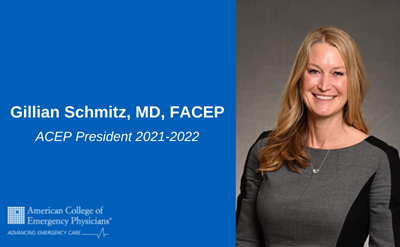WASHINGTON, D.C.—Charles Pattavina, MD, FACEP, an emergency physician in Bangor, Maine, and a member of the American College of Emergency Physicians (ACEP), testified Wednesday before the Senate Aging Committee about barriers to treating older patients who are struggling with prescription drug addiction. Dr. Pattavina was invited to appear by the Chairman, Sen. Susan Collins of Maine.
“I see patients every day who are affected by this crisis, including many who are older,” said Dr. Pattavina in his testimony. “It seems likely that most seniors who are on opioid medications were prescribed to them for pain as opposed to younger people who may be more likely to have started with so-called ‘recreational use.’”
The hearing focused on the continued challenges of identifying opioid misuse among older adults, the efforts to reduce seniors’ dependence on opioids, and the need to expand access to treatment for those battling addiction. Dr. Pattavina said that this part of the population is often overlooked in the current opioid crisis.
“Many perceive the face of opioid addiction as young,” said Sen. Collins. “The epidemic however, intersects just as much with older adults.”
Despite nationwide attention, the devastating and far-reaching impacts of the opioid epidemic persist. More than 46 people die each day just from prescription opioid overdose, and emergency departments are on the front lines of this crisis. According to the CDC, emergency visits due to overdoses increased by 30 percent between July of 2016 and September of 2017.
ACEP strongly supports two important, bipartisan bills to ensure emergency physicians are equipped with tools they need to fight the opioid epidemic both from a prevention and treatment standpoint and provide patients with the care they need. The Alternatives to Opioids (ALTO) in the Emergency Department Act (H.R. 5197/S. 2516) implements non-opioid evidence-based pain management protocols, such as nitrous oxide, trigger point injections, nerve blocks, and other pain management options, based on the successful and proven ALTO programs already in place in New Jersey and Colorado.
The Preventing Overdoses While in Emergency Rooms (POWER) Act (H.R. 5176/S. 2610) would provide grants to establish policies and procedures for initiating Medication-Assisted Treatment (MAT) in the emergency department and develop best practices to provide a “warm handoff” to appropriate community resources and providers to keep patients engaged in treatment. MAT is a proven medical treatment that can relieve withdrawal symptoms and psychological cravings of opioid use disorder.
“We urge legislators to ensure these bills continue to be included in the comprehensive opioid package under development in Congress,” said Dr. Pattavina.
To see the full testimony, please click here.
 American College of Emergency Physicians
American College of Emergency Physicians







